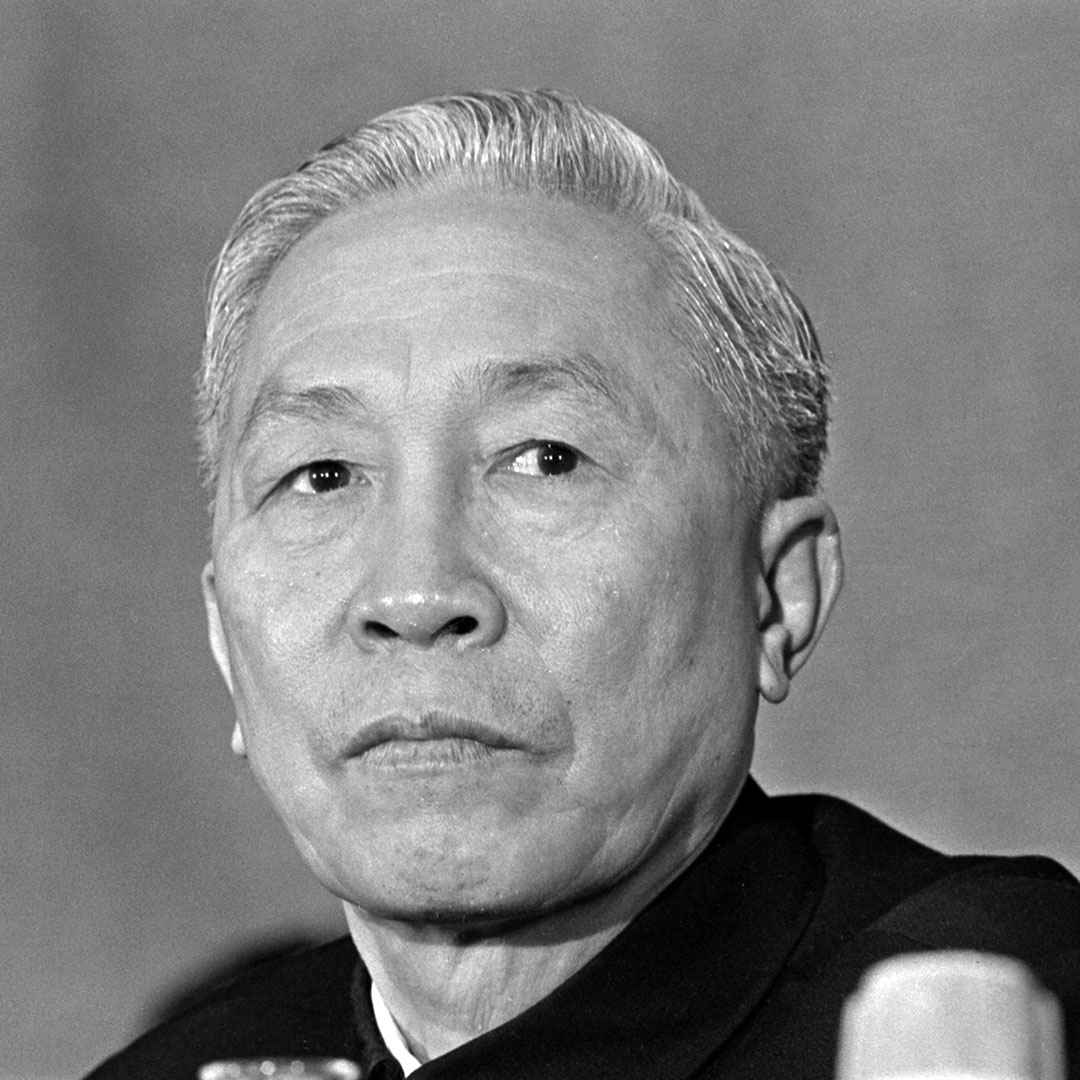Le Duc Tho
Speed read
Le Duc Tho was awarded the Nobel Peace Prize, jointly with Henry Kissinger, for negotiating a cease-fire in Vietnam in 1973.

Full name: Le Duc Tho
Born: 14 October 1911, Nam Ha province, Vietnam
Died: 13 October 1990, Hanoi, Vietnam
Date awarded: 17 October 1973
The strategist who declined the Nobel Peace Prize
Educated at French schools, Le Duc Tho became a communist, fighting from the age of 16 to free his country from both French colonial rule and Japanese occupation in WW2. In 1954 Vietnam was partitioned into a US-backed South Vietnam and a communist North Vietnam. By the mid-1960s North Vietnam had embarked on a guerrilla war to reunite the country. Although Le Duc Tho dismissed the USA’s intervention in the Vietnam conflict as neo-colonialism, it was he who led negotiations with the USA in Paris from 1968. In 1973 a ceasefire was agreed, though it quickly broke down. This led Le Du Tho to refuse the Nobel Peace Prize he had been awarded jointly with US negotiator Henry Kissinger. In 1975 Le Du Tho masterminded the campaign that resulted in the conquest of South Vietnam.
At war with France and the USA
During Japan’s WW2 occupation of Vietnam, Le Duc Tho joined the Communist Party’s central committee. After the war, he was one of those who led the armed resistance to France’s reestablishment of colonial rule. Following a military defeat in 1954, the French withdrew, but Vietnam was partitioned. The USA backed South Vietnam, and provided military support to prevent Vietnam from reuniting under communist rule. From the late 1950s Le Duc Tho was responsible for organising a guerrilla movement in the South, which fought with North Vietnam against the USA and the South Vietnamese regime.
Negotiations in Paris
Having failed to win on the battlefield, the USA started peace negotiations with North Vietnam in 1968. Le Duc Tho was chosen to meet President Nixon’s adviser, Henry Kissinger, at the negotiating table in Paris. Le Duc Tho demanded that USA pull out of Vietnam, and that the South Vietnamese regime be dissolved. In January 1973 an agreement was reached. Le Duc Tho renounced the total dissolution of South Vietnam, but the FNL/Vietcong, which was backed by the North, was allowed to retain areas it had conquered in the South.
Peace prize awarded and refused
In October 1973 the Norwegian Nobel Committee awarded the peace Prize to Henry Kissinger and Le Duc Tho for having “acted in accordance with Alfred Nobel’s philosophy, which was that international conflicts must be resolved through negotiation and not war”. But the ceasefire had already broken down. Le Duc Tho sent a telegram to the Committee, saying it was “impossible to accept the prize with which the Committee has honoured me. When the Paris Agreement on Vietnam is respected, the weapons fall silent and peace is restored in South Vietnam, I will consider accepting the prize”.
Vietnam reunites – Le Duc Tho’s political downfall
Although the USA pulled the bulk of its military forces out in 1973, the war between North and South Vietnam continued. Le Duc masterminded the campaign by the FNL/Vietcong guerrillas and North Vietnamese forces which led to the collapse of the South Vietnamese regime in 1975. A year later Vietnam was reunified. In 1979 Le Duc Tho led the invasion of Kampuchea that ended the Khmer Rouge’s reign of terror. Domestically, Le Duc Tho was a political dogmatist. His refusal to sanction economic reforms led to his ejection from the party leadership in 1986. He died four years later, aged 79.
"The just cause triumphs over the evil cause. The will to live in freedom triumphs over cruelty."
Le Duc Tho, 24 January 1973.
Disclaimer: Every effort has been made by the publisher to credit organisations and individuals with regard to the supply of photographs. Please notify the publishers regarding corrections.
Nobel Prizes and laureates
Six prizes were awarded for achievements that have conferred the greatest benefit to humankind. The 14 laureates' work and discoveries range from quantum tunnelling to promoting democratic rights.
See them all presented here.
